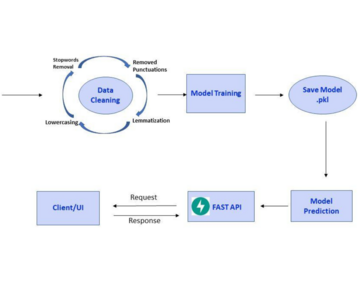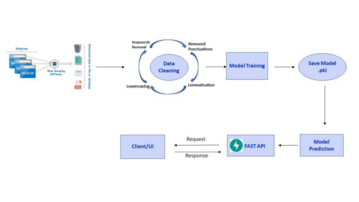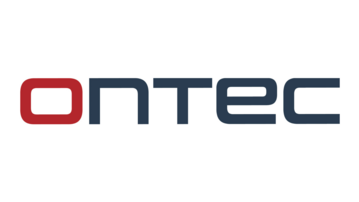Recruitment of technical talents is challenging for recruiters and HR professionals as they often do not know which skills to look for. A team of SRH students builds an AI system that identifies important skills for technical jobs.

Recruitment of technical talents is challenging for recruiters and HR professionals as they often do not know which skills to look for. A team of SRH students builds an AI system that identifies important skills for technical jobs.
What is the project about?
This project takes place in collaboration with ONTEC AG, an Austrian custom solution developer that develops software and ML/AI based solutions individually for their respective customers. One of these customers is a recruitment agency. Recruitment of technical talents is challenging for recruiters as they usually do not know what technology names or skills mean. RABE analyzes publicly posted job boards to identify which skills are needed for which type of job description to help the recruiter when searching through large amounts of CVs.
The delivered information is two-fold. Firstly, skills that are relevant for specific jobs are identified. These change over time as fields and jobs evolve. Secondly, skills that are often required simultaneously are identified. The second approach also aims to provide recruiters with a broader base for search terms when looking up potential candidates from their CV collection.
This use case has been chosen as no privacy protected data is analyzed and the relevant source data is publicly available in online job boards. The developed solution works with German job posting as the data was collected from Austrian job boards. Nevertheless, the same method can be applied to any language.

How did the idea come about?
The idea for the Recruitment Assisting Buddy Engine (RABE) likely came about due to the challenges faced by recruiters and HR professionals in identifying and assessing technical skills required for specific job roles. Additionally, the requirements for certain jobs shift over time. The usual process for recruiters is to query-search through CVs looking for the mentioning of specific skills. Not knowing what to look for greatly increases the difficulty. Normally, recruiters spend a significant part of their workday on researching job requirements using internet search engines and reading online job descriptions.
The idea for RABE may also have been sparked by the increasing demand for technical talent in the job market, as well as the growing importance of data-driven decision making in recruitment. By automating the process of identifying required technical skills, RABE can provide recruiters with more accurate and relevant data to inform their hiring decisions, which can be particularly valuable in fields such as technology and engineering.
What makes the project special?
The Recruitment Assisting Buddy Engine (RABE) project is special because it aims to address a significant challenge faced by recruiters and HR professionals in the hiring process, namely the difficulty of identifying and assessing the technical skills required for specific job roles.
By automating the process of analyzing job descriptions and identifying the required skills, RABE can significantly speed up the recruitment process and reduce the workload of recruiters. This is achieved through the use of natural language processing and machine learning algorithms, which allow RABE to extract key information from job descriptions and identify patterns in the required skills.
In addition to identifying the required skills, RABE can also identify skills that are usually required together, which can provide additional insights to recruiters and help them to better understand the specific skill sets that are required for certain job roles.
Overall, the RABE project has the potential to revolutionize the recruitment process by making it faster, more efficient, and more accurate, ultimately benefiting both recruiters and job seekers.
What are the next steps?
The next steps for the project could include further development and refinement of the technology, as well as expansion into new markets and industries. In terms of technology development, the RABE system could be improved and refined to increase its accuracy and effectiveness in identifying the required technical skills for specific job roles. This could involve further training of the machine learning algorithms using larger datasets, as well as incorporating user feedback to improve the relevance and accuracy of the results.
In terms of market expansion, the RABE system could be adapted for use in different industries and job markets beyond the technology and engineering fields. This could involve customizing the system to identify the specific technical skills required for different industries and job roles, and partnering with recruiters and companies in these industries to test and refine the system.
In addition, the RABE project could explore opportunities for integration with other recruitment and HR technologies, such as applicant tracking systems and candidate assessment tools. This could create a more comprehensive and streamlined recruitment process for companies and recruiters, and further increase the value of the RABE system for these stakeholders.
Prof. Dr.-Ing. Binh Vu, Prof. Dr. Swati Chandna, students of the April 2022 batch

